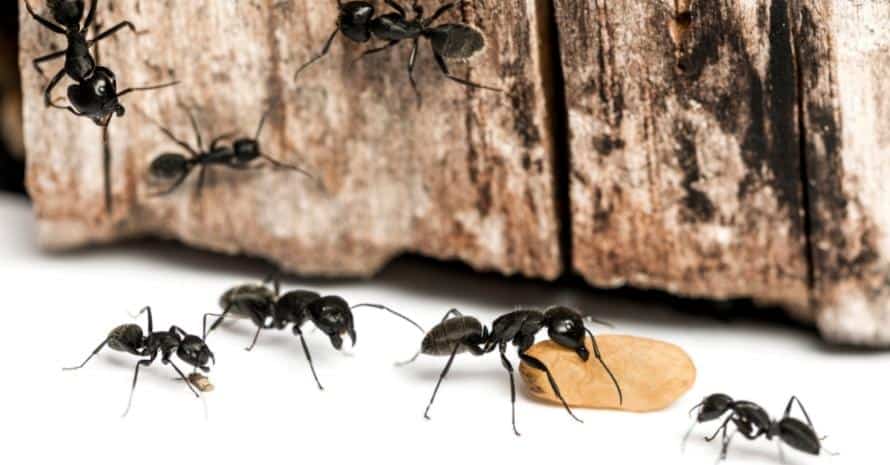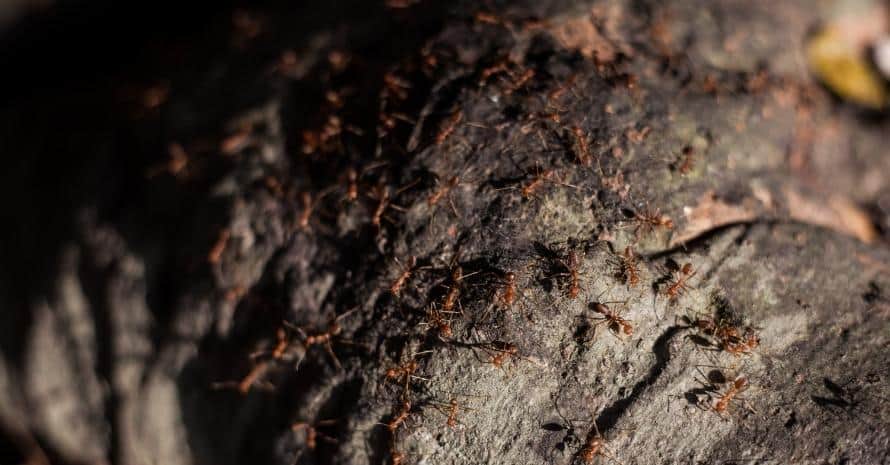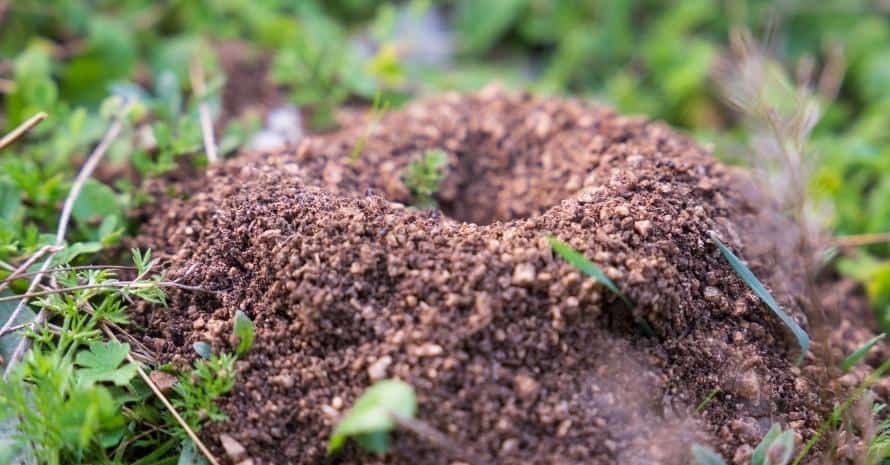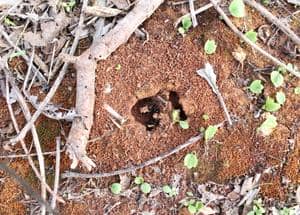When winter comes, all creatures start to prepare to get through this tough time. What do ants do in the winter? Insects are known to go into hibernation, but each species have their own algorithm and peculiarities.
Where Do Ants Go In the Winter
Winter means less food, no sun, and a lot of mouths to feed. It is hard to keep track of one family, and we are talking about a colony of more than ten thousand workers.
Ants are social creatures, and each insect has its own duties when it comes to taking care of the anthill.
Ants Preparation for Cold Times
During autumn, ants do all of the needed preparations to survive through winter. They eat huge amounts of food that contains lots of protein, sugar, and fats.
They need it to store in their body, and you may notice that with colder temperatures, ants begin to look a little bit bigger. Ants go on long adventures to feed their queen and provide provisions for the hatching eggs.
Workers work together in search of food, and they can accidentally walk into your house, your best option, in this case, is to wipe their tracks with vinegar or strong chemicals and tightly seal any cracks that they might’ve found.

As cold winds start to terrorize the lands, they become sluggish and slow, eat and drink much less feeling the winter hibernation coming.
Workers come back to the anthill, and slowly ants tend to close most of the ways out of the colony, leaving only the backup ones for emergencies. Ants during winter dig down and go deeper into the soil because as you get closer to the Earth’s core, it becomes warmer.
What Do They Do Exactly
Once the temperature reaches 90°F, you probably won’t see any ants in winter. They hide in their anthill, huddling together near the queen to keep her warm and protected, as this is the core of the colony.
Their metabolism slows down dramatically, and ants fall into the dormancy state when they don’t need to waste too much energy. All of their gained proteins and fats will help them survive through the winter, as ants slowly burn them down.
Some ant species can turn components of fat into glycerol, which is a natural antifreeze, thus protecting them from really low temperatures.
Do ants come out in the winter? Well, it is a rare sight. They try to keep warm deep in their anthills, but some workers can awake from their slumber and go search for food.
Of course, tropical species don’t need to hibernate through winter, as there is no danger for them to freeze during cold nights. Workers might stay awake while they guard the colony or tend to others.

Unfortunately, there are some poor creatures that didn’t manage to get into the anthill before the entrances got closed, so they will need to try and survive the winter on their own.
Usually, it includes them going to hide in warm houses. Don’t be afraid, as it won’t bring any buddies, but if you are really not fond of ants, it is okay to carefully let it outside somewhere in the tree trunk.
Please remember that there is no need to kill ants without a reason because they are an important part of a local ecosystem.
When to Expect Ants to Come Out
As you didn’t see any ants during winter, after the first call of spring comes, they start to slowly come out of their hideaways. The Sun starts to warm the soil, and workers feel it and awake upon the call of nature.
Now, it is time to gain back everything that was lost during winter. One by one, they go out from the anthill in search of food and water. In little chains, they follow each other and collectively bring back provisions for the colony to grow and expand.
For the next few months, they will explore new lands looking for any food leftovers, plants, and even mushrooms.
The anthill opens its doors, and workers go in different ways on their journeys. Now, ants need to prepare for summer and help the colony queen regain her powers so she can lay even more eggs.
Be careful while exploring nature in the early spring because you can accidentally step on the weak anthill causing it to ruin, and ants definitely won’t thank you for that.
Some protective workers might even attack you because they will consider you an enemy that wants to threaten their queen.
FAQ

Do ants freeze to death?
Usually, no. Ants hide deep in their anthills and keep warm by huddling together around the queen. If some poor worker got lost on its way to the colony and found all of the ways in close, then it probably stays outside for the winter and freezes.
What temperature do ants go away?
When the thermometer drops to 75 to 90°F, most ants go hide away in their anthills for winter.
Do ants work during winter?
Only some ants stay awake during winter: they tend to the colony queen and watch out for danger.
Do ants hibernate in the winter?
Ants don’t exactly hibernate but go into the state of dormancy to get through low temperatures.
Winter Vacation for Ants
How do ants survive winter? Should I think about them getting into my house? Now, you can be sure that those little creatures just go for a pretty long sleep during low temperatures, until spring notifies them that it is time to once again go on an adventure to find food.
What other facts would you like to know about ants? Have you ever seen an active anthill in winter? Please, share your opinion in the comments below.
Also read
Also read:
References
- Ants Are Ecologically Beneficial(Iowa State University Extension and Outreach)
https://hortnews.extension.iastate.edu/ants-are-ecologically-beneficial - Thermoregulation strategies in ants in comparison to other social insects, with a focus on red wood ants ( Formica rufa group)(National Library of Medicine)
https://www.ncbi.nlm.nih.gov/pmc/articles/PMC3962001/ - Social structure and winter survival in acorn ants(Joan M.Hervers and Christine A. Johnson)
https://www.jstor.org/stable/40235126

